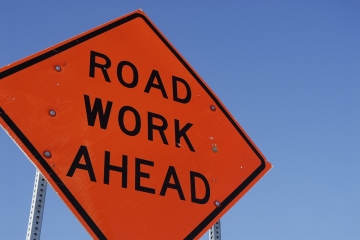Assessing the Nation’s Report Card: Challenges and Choices for NAEP is available for purchase from Harvard Education Press and Amazon, among other bookstores.
How will we gauge the academic setbacks that young Americans suffered due to Covid-forced school shutdowns? How do we see whether achievement gaps between groups of students are widening or narrowing? How can we tell whether eighth graders in Missouri do better or worse in math than their peers in Michigan and Maine?
We wouldn’t know these things or much else about K–12 achievement in America without a little-known but vital test, the National Assessment of Educational Progress, a.k.a. “NAEP” or the “Nation’s Report Card.”
Assessing the Nation’s Report Card: Challenges and Choices for NAEP, authored by veteran education participant/analyst Chester E. Finn, Jr., examines the history of NAEP, the issues and challenges that it faces today, and ways to strengthen and modernize it for the future. He offers a unique insider’s analysis of NAEP’s evolution over fifty years and a firsthand perspective on crucial decisions that have shaped it. The result is a revealing look at the country’s most influential source of data on K–12 achievement: how it came to be, what’s pushing it today, and what it must do tomorrow.
Assessing the Nation’s Report Card offers readers:
- An in-depth understanding and appreciation of NAEP.
- An examination of its strengths and frailties, its controversies, and its current issues.
- An exploration of why NAEP is both the gold standard of education assessments and a barely understood federal program.
- Insight into NAEP’s persistence and growth in a time of opposition to testing and wariness of the federal role.
Among many other positions, Finn served as assistant U.S. secretary of education during a formative period in NAEP’s history and as first chair of its governing board. The author of more than a dozen earlier books, he is president emeritus of the Thomas B. Fordham Institute and a senior fellow at Stanford’s Hoover Institution.
Praise for Assessing the Nation’s Report Card
If you want to know how “The Nation’s Report Card” became the most reliable gauge of what and whether American children are learning, this book is a must read. Checker Finn knows the history better than anyone because he was present at NAEP’s founding and has been its most persistent and thoughtful advocate ever since. —Lamar Alexander, former U.S. Secretary of Education, U.S. Senator, and Governor.
Finn’s vision of the future of NAEP is nuanced—balancing the technological possibilities of modern assessment with the many limits that now shape NAEP. This is a powerful book written by a master of exposition and analysis informed by a long personal history with “The Nation’s Report Card.” —Mark Schneider, director, Institute of Education Sciences
Finn makes the very dense topic of NAEP easy and enjoyable to read while also preserving the critical place it holds for our country’s future. —David Driscoll, former Massachusetts Commissioner of Education and former chair of the National Assessment Governing Board




